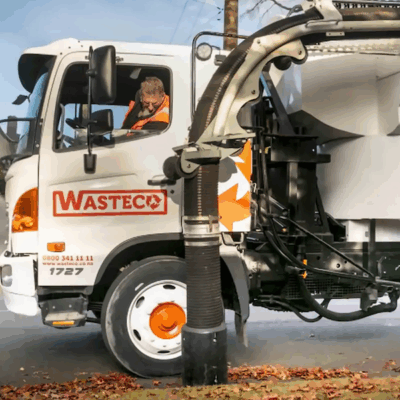Better business productivity
Pictured above: Justin Flitter.
In conversation with Justin Flitter, founder of NewZealand.AI.
Justin Flitter started his AI journey back in 2015, initially driven by curiosity about how devices like Amazon Alexa and Google Home were changing communication and customer experiences. Today, he’s excited by advancements in AI and how it accelerates or automates manual tasks, freeing up time for humans to focus on building relationships, being creative, and helping others.
“By reducing time spent on mundane tasks, individuals can invest more in high-value, rewarding activities,” says Justin. He says that AI will play a crucial role in addressing the much publicised challenges related to the decline in business productivity by automating mundane tasks, and allowing humans to focus on creative and relationship-building endeavours.
In 2017, Justin founded AI New Zealand to help business leaders discover why, where and how to leverage AI. Today NewZealand.AI is where Kiwi companies start their AI journey.
How are business owners translating these AI endeavours into practical solutions?
Small businesses are integrating AI in three main ways:
- Building chatbots for customer support or employee training.
- Utilising Answer Engines like ChatGPT or Microsoft Copilot for tasks such as research, email writing, and report summarisation.
- Creating digital avatars to enhance marketing content production and reduce video production costs.
For small business owners ready to implement AI solutions, where should they start?
Identify tasks or processes suitable for AI optimisation, focusing on those that are dull, dangerous, dirty, or dear. Then, deploy utility tools like ChatGPT (Business Account), Microsoft Copilot, or Google Gemini to enhance productivity. Training, support, and data security protocols are crucial for successful implementation.
What are some common AI misconceptions, particularly within SME settings?
Organisations often struggle with organising company data and content, establishing security measures, and overcoming employee resistance to AI adoption.
- “We don’t have enough data”: With Generative AI, businesses can leverage various data sources beyond traditional datasets.
- “It’s too expensive or complex”: Starting with utility tools can be cost-effective and provide substantial benefits.
- “There are too many privacy and security risks”: Deploying AI tools with proper security protocols mitigates risks.
Are there any downsides to SMEs adopting AI technologies within their organisations?
Improved productivity, employee well-being, and customer satisfaction outweigh any potential downsides. AI implementation may highlight areas for improvement in company practices and workflows, which can be addressed with proper guidance and support.
How long do you think this period of AI disruption will last?
The next 18 months will witness rapid AI adoption, making it a fundamental aspect of business operations. AI is becoming indispensable, and every business must embrace it.
Do you have any stats on AI uptake within New Zealand’s SME sector?
- 48 percent of New Zealand organisations currently use AI, primarily utility tools like ChatGPT and Microsoft Copilot.
- Only 53 percent of organisations have implemented AI usage policies, with 24 percent having legal guidelines in place.
- Employers believe generative AI could boost productivity by 49 percent, with workers anticipating a 46 percent efficiency increase in tasks.
Who is doing cool things with AI?
Companies like Genesis Energy, Apparel Master, Air New Zealand, and Fruitometry in New Zealand are leveraging AI to boost productivity, enhance efficiency, and drive innovation in various sectors. Check them out.
How have you used AI today?
Today, I’ve utilised Perplexity for research and document creation, Midjourney for marketing image creation, and Google Gemini to summarise a lengthy report.







